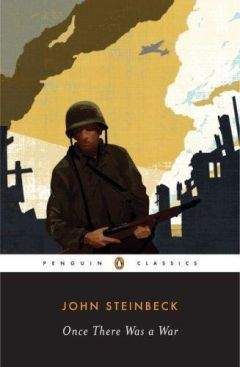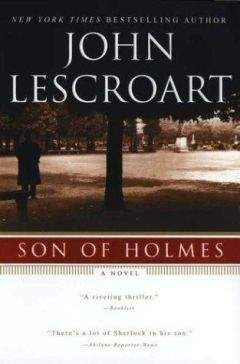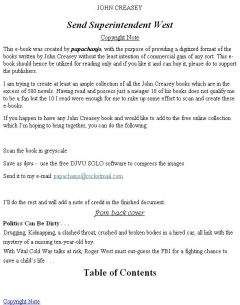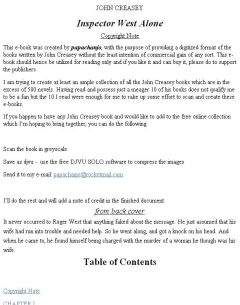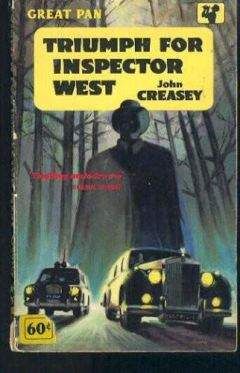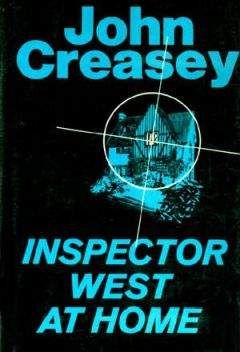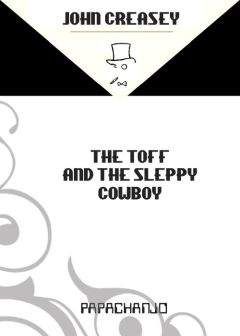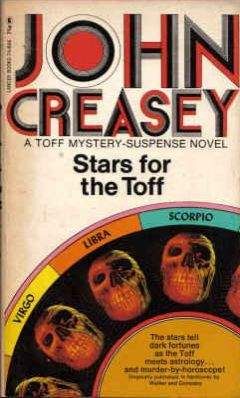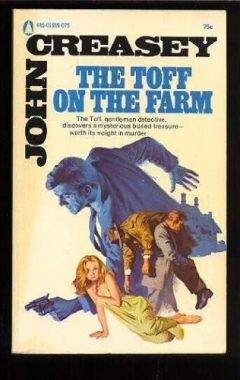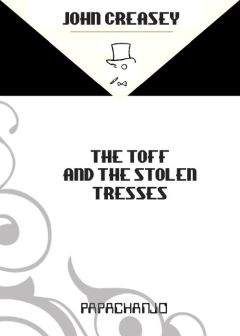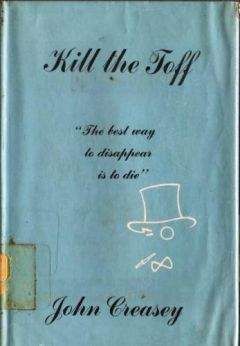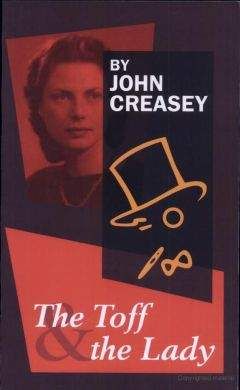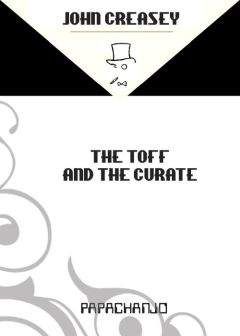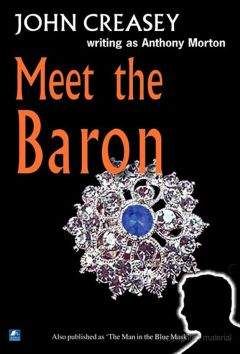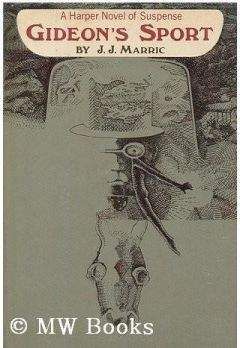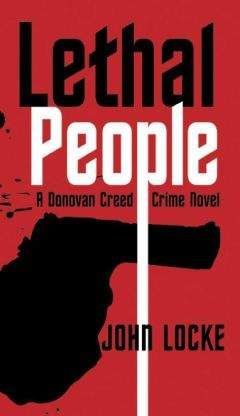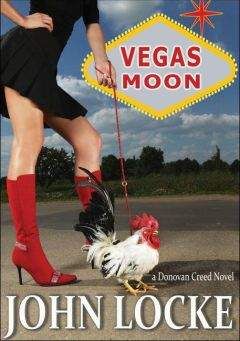John Creasey - Alibi
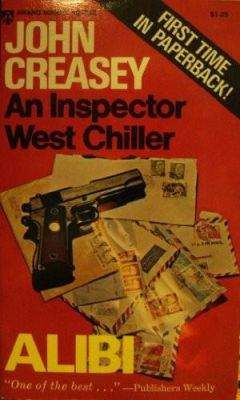
Скачивание начинается... Если скачивание не началось автоматически, пожалуйста нажмите на эту ссылку.
Жалоба
Напишите нам, и мы в срочном порядке примем меры.
Описание книги "Alibi"
Описание и краткое содержание "Alibi" читать бесплатно онлайн.
“Sign that or I shall shoot you,” Phillipson’s voice was steady.
Roger put his hand to his pocket, and there was a silent cry within him. When are those four coming? Phillipson lowered his arm and Artemeus handed him a pen with which to sign. Roger took this, poised it over the confession—and then, in a lightning movement, jerked it backwards and towards Phillipson’s face. At the same time he leapt past Artemeus, twisting round as he did so. Phillipson was staggering back, the gun waving, but he would recover his balance before Roger could get at him, and there was only one thing left to do. Grabbing Artemeus’s jacket with one hand so that the man was unable to move, he swivelled his chair round with the other, and crouched behind it. Phillipson steadied, the gun pointed, and suddenly a bullet spat; there was a zutt of sound and a stab of flame and a bullet buried itself in the big oak desk.
“Mind me!” screeched Artemeus.
Phillipson levelled the gun again, and moved to one side. Roger swivelled the chair slowly, tightening his grip on Artemeus, keeping his prisoner always between himself and the gun.
Phillipson fired again, and missed.
As he aimed a third time, the passage door burst open and two Yard men flung themselves into the room. They saw the gun and did not need Roger’s shout of warning. Fast upon that, one of them yelled on a note of alarm that cut through Roger like a knife, “Watch him, sir!”
Watch who?
Watch Phillipson!
Suddenly Roger saw the newspaper editor fling himself towards the window, firing at the two Yard men as he did so. Reaching the window, he kicked the glass through with one foot, then hurled himself out to the pavement ten storeys below.
• • •
Benjamin Artemeus sat shivering in his chair, while Roger looked down at the sprawled figure on the pavement. In her office, Miss Noble sat at the desk, hands on her broad lap, hopelessness in her expression.
• • •
“If you don’t mind me saying so, sir,” said Danizon, “that was a wonderful job. I’ve talked to the secretary, Miss Noble, she says you were magnificent. Her very words, sir. And if you don’t mind me saying so, you look all in.
And you’ll have to see the commander and probably the commissioner very soon. Would it be a good idea if you rested for half an hour? There’s a bathroom next door, and a room next to that where you could put your feet up.”
They were going through papers in Artemeus’s desk.
They had already done a great deal since the shooting and the tragedy. Ambulances and police had arrived and Phillipson’s body had been taken away. An area of the Strand had been roped off and the police were busy there. Other police had been sent to Phillipson’s office, which had been sealed off, and members of the Board of the Globe as well as of Allsafe and other interested com-panies were being interviewed. Artemeus was now at the Yard. He had not spoken since Roger had arrested him, and was so blue in the face that he seemed likely to have a fatal attack at any moment. A police surgeon was standing by. Coppell had been interrupted at the European Police Conference, and he was believed to have told the commissioner about the situation.
There were at least two things Roger didn’t know.
First, who had killed Maisie? Second, what part had Rapelli really played in the murder of Verdi, and why had Verdi been killed?
The answers were somewhere in this mass of papers; they could even be in the evidence he had already discovered, but which he could not interpret properly.
These things went through his mind as he said, “Good idea, Tom. By the way, what brought you in person?”
“I took a chance after I’d ordered patrol cars to come here,” said Danizon, with refreshing honesty. “Just for once I wanted to be out on a job. I—oh, L forgot. Your wife telephoned twice this afternoon, and I thought she sounded anxious. When you’ve had a shower you might like to call her.”
“Yes,” Roger said, heavily. “I will.”
He went along to the bathroom, through a small and pleasantly furnished room where there were drinks, cocktail biscuits, glasses and some magazines—and a telephone. He thought he could guess what Janet had to say and he was in no mood, yet, to hear it. There was a lot to do, and soon he would have to report to Coppell—and quite possibly the commissioner as well.
Chapter Nineteen
INTERRUPTION
Roger soaked for a few minutes in the bath. The water was warm, too warm, but soothing to his over-tired body. Danizon was right, he thought. He must relax completely for ten minutes or so, must clear his mind of everything and forget the case entirely. He lay back and closed his eyes, but immediately he did so thoughts came crowding into his head—thoughts of Maisie, of Rachel Warrender, of Mario Rapelli, of Hamish Campbell, of everyone in-volved—each one forming a clear and living picture on the retina of his mind. Somewhere, in this maze of tangled evidence, were the clues he needed. Both Artemeus and Phillipson had obviously been involved in the campaign to discredit him in the Police Force and thus compel him to join Allsafe. But could that be simply to boost Allsafe against its competitors? Such a thought was inconceivable. And what in heaven’s name, Roger wondered, was the connection with the Verdi affair?
If he had to point a finger at the most astonishing development in this whole case it would be Rachel War- render’s visit, and her pleading for him to find out the truth. She had been in a desperate mood, had not slept all night; it was strange that she had felt so deeply at such a simple deception.
“My God!” Roger suddenly exclaimed aloud.
He looked round, and saw a telephone. He grabbed it, water dripping, instrument slipping from his fingers. An operator answered.
“Detective Sergeant Danizon, please. He’s in Mr. Art—”
“I know where he is, sir.”
There was only a moment’s pause before Danizon answered, but in this pause Roger’s thoughts were racing, and he spoke as Danizon came on the line.
“Have you come across any documents or files showing who represents Allsafe legally?”
“Well, yes, sir,” Danizon said. “I was struck by the coincidence. It’s Warrender, Clansel and Warrender, of Lincoln’s Inn.”
“So it is,” said Roger tautly. “Telephone Rachel War- render and ask her to meet me at the Yard in an hour. You’d better be there, too. I’ll be out of here in five minutes, and I’m going over to the Festival Hall, to see the commander.”
“But if you interrupt him at the conference, sir—” Alarm thickened Danizon’s voice.
“I’ll either be out on my neck or the next deputy commander,” Roger said drily. “I know.”
In ten minutes he was outside in the Strand, facing a battery of reporters and photographers. A large crowd had gathered, hundreds of people watching the police taking photographs and measurements of the spot where Phillipson had fallen. As West appeared, the crowd surged towards him.
“Just a moment, Super.”
“Hold it.”
“Is it true that you were in the room when Phillipson jumped out of the window?”
“What’s it all about, Handsome?”
One man said in a very deep voice, “Can you give us a statement, sir?”
All this time Roger was pushing his way through the surging mass of onlookers, two constables trying to clear a path for him. Cameras were being held high, photographers were on the roofs of cars, on window ledges, even on one another’s shoulders.
“Was it suicide?” one man called.
“Or was he pushed?”
“Just a brief statement, sir,” pleaded the man who had asked before.
Through the crowd Roger could just see the head and shoulders of Detective Constable Ashe. He must be near the car, thought Roger, struggling towards him in the wake of the two constables. At last he reached it, the two policemen as well as Ashe protecting him as he started to get in. Then, standing on the side of the car and supporting himself by the door and a policeman’s shoulder, he faced the crowd.
“I’ll have a statement of some kind ready at the Yard by seven-thirty,” he called in a clear voice. “That’s a promise.”
There must have been fifty cameras snapping him as he stood there. All questions stopped, he got into the car unhindered, and the crowd drew back, allowing Ashe to drive him away.
Fifteen minutes later he was entering the Royal Festival Hall. This hall, London’s musical pride since the 1951 Exhibition, was often used during the day for conferences. On this particular day it was almost filled with policemen from over thirty countries of Europe, including each of the Iron Curtain countries. Roger went to a table marked Organisation and spoke to a grey-haired woman whom he vaguely recognised as from the Yard; the Metro-politan Police were responsible for all the arrangements here.
“Good afternoon, Mr. West.”
“Good afternoon. I must speak to Mr. Coppell,” Roger said.
“Oh, no !” she exclaimed. “The president of the conference is making his closing speech. You can’t hear a pin drop in the hall, sir.”
Roger hesitated only for a moment before saying positively, “Five minutes is the absolute limit I can wait.”
“Oh, but it will be an hour at least! I daren’t disturb him.”
“Do you know where Mr. Coppell is?” asked Roger.
“He’s about halfway down on the left-hand side of the centre aisle, but the commissioner’s with him.”
Roger said, “Thank you,” and opened a door into the huge auditorium. A man was standing on the huge stage, small, dark-haired, pale-faced, vivid in a single spotlight. He was Karl Schmidt of West Germany, one of the world’s great policemen and an orator in German, French and English. The woman was quite right; there was utter stillness and there was magnetism in that clear, only faintly guttural voice.
Roger felt acutely self-conscious, and very glad of the carpeted floor. He passed rows and rows of men, with only here and there a woman, but no one appeared to take the slightest notice of him. He was scanning the heads for Coppell’s, which he would recognise—ah! There he was, only one seat off the aisle. Roger drew nearer, and gulped, for the commissioner was in the aisle seat and he could see how intent Trevillion was on the speaker.
. . . “. . . and if we are to bring this dreadful wave of crime to an end . . .”
Roger summoned up all his courage and bent forward. “Excuse me, sir,” he whispered, touching Trevillion’s arm, “I must see the commander.”
“What —!” Trevillion ejaculated.
“Shhh!” someone hissed.
“What?” muttered Trevillion.
Now Coppell had been disturbed, and he turned too. There was just enough light to show Roger’s face, as he breathed, “It’s vitally urgent, sir.”
“I’ll come,” whispered Coppell.
Roger turned and made his way back, noticed this time by people near the scene of the interruption, aware of many eyes turned towards him. But even so, most eyes were still riveted on the figure on the stage.
“. . . we have, as we well know, many political problems and social problems but none of us, whatever our ideology, our faith, wants crime on the scale that we now have it. We must find a set of rules to which we can all subscribe; must have co-operation at its closest in the investigation of certain crimes, such as murder for gain . . .”
Roger went into the foyer, and held the door open. The woman at the table was staring intently; her eyes widened when first Coppell and then the commissioner came out. Roger closed the door quietly, and Coppell said in a growl, “Your reason had better be good.”
Trevillion was staring at Roger in a puzzled way, not at all censorious or angry; just puzzled. Roger led the way towards a place at the foot of a staircase where no one could come upon them unawares, and overhear what was said.
“Well?” Coppell growled again; whether out of anger or to impress the commissioner, Roger couldn’t guess.
“Phillipson of the Globe has just committed suicide by throwing himself out of the window of the Allsafe managing director’s office,” Roger stated. “Benjamin Artemeus, of Allsafe, is under arrest on a charge of assisting Phillipson in an attempt to commit grievous bodily harm. Phillipson and Artemeus were conspiring to get control of all the security companies of consequence in the country.
They used me as a pawn to win shareholders’ votes. All of these facts can be established from a tape-recording made while I was in Artemeus’s office. I have ordered police control of the Allsafe administrative offices and our men are in possession.”
Roger paused, as much for breath as anything else. Neither of the others spoke or moved, and at last he went on, “I believe the editorial and administrative offices of the Globe should be searched forthwith, although it is conceivable that some papers have already been destroyed. I also believe that all the directors and executives of the security companies concerned should be interrogated and their homes searched for incriminating docu-ments. Further, I believe that the law firm of Warrender, Clansel and Warrender is involved, and I think its offices and the homes of its partners should be searched, at once.”
He paused again, and this time Coppell gasped, “Good God!”
“I did not feel that I could give orders for these raids on my own account,” Roger said. “We need all available men from the C.I.D.: all officers off duty should, in my opinion, be called in so that a clean sweep can be made tonight. I doubt if any of the suspects will expect such immediate action, but if we wait until tomorrow then any incriminating documents could be burned or otherwise destroyed, while any individuals engaged in the conspiracy could get together to offer false explanations and in some cases might flee the country during the night.” He moistened his lips, but paused only for a moment. “I hope you will authorise the raids, gentlemen. I believe them to be essential.”
“And Phillipson is dead!” said the commissioner, in-credulously. “I know—I knew him well.”
Was he going to be as slow as that in catching up with the situation? Roger wondered desperately.
“We’d better hear that tape-recorder,” Coppell said. “Is your car outside, Handsome?”
“At the door.”
“Shall we go in that?” Coppell suggested to the commissioner. It was almost a direction and they moved towards the door. “We can hear the rest of West’s story on the way.”
Подписывайтесь на наши страницы в социальных сетях.
Будьте в курсе последних книжных новинок, комментируйте, обсуждайте. Мы ждём Вас!
Похожие книги на "Alibi"
Книги похожие на "Alibi" читать онлайн или скачать бесплатно полные версии.
Мы рекомендуем Вам зарегистрироваться либо войти на сайт под своим именем.
Отзывы о "John Creasey - Alibi"
Отзывы читателей о книге "Alibi", комментарии и мнения людей о произведении.





